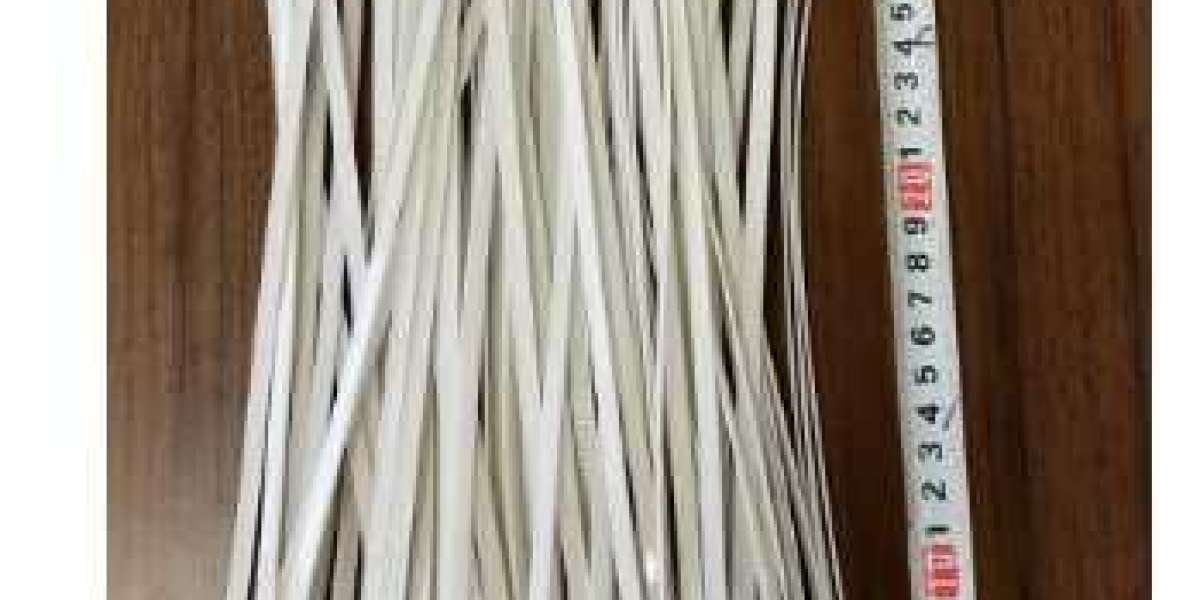What is the significance of functional masterbatch in the manufacturing industry?
How are functional additives different from regular masterbatches?
Can custom color solutions be achieved with functional masterbatches?
In what industries are functional compounds commonly utilized?
What advantages does using functional masterbatch offer over traditional methods?
In the realm of plastics, functional masterbatch plays a pivotal role in enhancing properties and performance. These specialized additives offer a cost-effective solution for improving characteristics such as color, UV resistance, and durability in plastic products. By incorporating functional masterbatch during the manufacturing process, companies can efficiently customize their materials to meet specific requirements and industry standards. This blog post delves into the significance of functional masterbatch, its diverse applications across various sectors, and the advantages it offers to manufacturers seeking tailored solutions for their plastic products.
Defining Functional Masterbatch and Its Distinction
Specialized Additive
Functional masterbatch, a specialized additive in the plastic industry, plays a crucial role in enhancing the properties of plastic products. By incorporating functional additives, it significantly improves various aspects of plastics.
Functional masterbatch is carefully formulated to meet specific requirements such as UV protection, flame retardancy, anti-static properties, or antimicrobial features. This targeted approach ensures that the final plastic product meets desired standards and functionalities effectively.
Different from Regular Masterbatch
In contrast to regular masterbatch used for coloration purposes, functional masterbatch serves specific purposes beyond just adding color to plastics. While regular masterbatch focuses on aesthetics and pigmentation, functional masterbatch prioritizes enhancing performance characteristics for diverse applications.
The distinction lies in their intended use: regular masterbatch primarily changes the color of plastics without altering their fundamental properties; meanwhile, functional masterbatch imparts additional functionalities like durability, conductivity, or protection against external factors.
Types of Functional Additives in Masterbatches
UV Stabilizers
UV stabilizers are additives that protect plastic products from the harmful effects of ultraviolet radiation. They prevent discoloration, degradation, and loss of physical properties caused by exposure to sunlight. For example, a UV stabilizer added to a plastic water bottle helps maintain its clarity and structural integrity when exposed to sunlight for prolonged periods.
UV Stabilizers:
Protect plastic products from ultraviolet radiation
Prevent discoloration and degradation
Maintain clarity and structural integrity
Flame Retardants
Flame retardants are substances added to plastics to reduce their flammability and inhibit the spread of fire. These additives help increase the safety of various plastic products by slowing down or stopping the combustion process. For instance, flame retardants in electrical enclosures can prevent fires in case of short circuits.
Flame Retardants:
Reduce flammability in plastics
Inhibit the spread of fire
Increase safety in plastic products
Antimicrobial Agents
Antimicrobial agents are components incorporated into masterbatches to inhibit the growth of bacteria, mold, or fungi on plastic surfaces. By incorporating antimicrobial agents into food packaging materials or healthcare devices, manufacturers ensure product hygiene and longevity by preventing microbial contamination.
Antimicrobial Agents:
Inhibit bacterial growth on plastic surfaces
Ensure hygiene in food packaging
Prolong product lifespan
Benefits of Functional Additive Masterbatches
Enhanced Performance Characteristics
Functional masterbatches are designed to improve the properties of plastic products. By incorporating additives such as UV stabilizers, antioxidants, or flame retardants into the masterbatch, manufacturers can enhance the durability and weather resistance of plastics. For example, adding UV stabilizers through a functional masterbatch can protect plastic products from degradation caused by sunlight exposure.
Plastic products treated with functional additive masterbatches often exhibit superior performance characteristics compared to those without additives. These masterbatches contribute to increasing the lifespan of plastic goods by providing them with additional protection against external factors like harsh weather conditions or chemical exposure. Consequently, items like outdoor furniture made with these enhanced materials last longer and maintain their appearance over time.
Cost-Effective Solutions
One significant advantage of using functional additive masterbatches is their cost-effectiveness in comparison to directly adding individual additives during the manufacturing process. Incorporating additives into a masterbatch allows for better dispersion within the plastic matrix, ensuring uniformity in product quality. This method reduces material waste and minimizes production costs associated with handling multiple separate additives.
Pros:
Improved performance characteristics
Longer lifespan for plastic products
Uniform dispersion leading to consistent product quality

Custom Color Solutions in Functional Masterbatches
Incorporating Specific Colors
Functional masterbatches can be tailored to include custom color solutions in plastic products. This customization allows for the integration of specific colors that align with branding needs or aesthetic preferences. For example, a company producing food contact materials may choose functional masterbatches that incorporate its brand colors into the packaging.
Custom color solutions not only enhance the visual appeal of plastic products but also create branding opportunities. By utilizing functional masterbatches to achieve unique and consistent colors, companies can establish a recognizable brand identity through their packaging. This consistency ensures that all products maintain the same appearance, reinforcing brand recognition among consumers.
Ensuring Color Consistency
One significant advantage of using custom color solutions in functional masterbatches is the color consistency they provide throughout production. Whether manufacturing food contact materials or other plastic items, maintaining uniformity in color is crucial for product quality and consumer satisfaction. Functional masterbatches ensure that each batch of plastic material is colored accurately and consistently.
Pros:
Enhances branding opportunities
Ensures uniformity in product appearance
Understanding Functional Compounds
Definition of Functional Compounds
Functional masterbatch, a type of functional compound, merges polymers with specific additives to create a material that serves various purposes. These compounds are engineered to deliver numerous functions within one substance. For instance, they can offer color, UV protection, and flame retardancy in a single product.
Functional compounds streamline the manufacturing process by combining different elements into one material. In essence, they eliminate the necessity for separate additives like pigments or stabilizers. This integration enhances efficiency and reduces production costs significantly.
Advantages of Using Functional Compounds
Convenience: By incorporating multiple functionalities into one compound, manufacturers simplify their processes.
Efficiency: The use of functional masterbatches saves time and resources by eliminating the need for additional additives.
Cost-effective: Producing materials with functional compounds can lead to cost savings due to reduced requirements for extra components.
Manufacturers looking to enhance their products' properties often turn to functional compounds because they provide an all-in-one solution. A prime example is using a masterbatch that not only imparts color but also improves the material's durability through added strength or flexibility.
Applications in Various Industries
Automotive Industry
Functional masterbatches play a crucial role in the automotive sector by enhancing properties like scratch resistance and UV protection of exterior parts. These compounds help to maintain the appearance of vehicles, ensuring they look new for longer periods. By incorporating functional masterbatches into manufacturing processes, car manufacturers can improve the longevity and durability of their products.
Advantages of Using Functional Masterbatches
Simplified Manufacturing Process
Functional masterbatches are beneficial because they simplify the manufacturing process by combining multiple additives into a single step. This integration streamlines production, making it more efficient and cost-effective. For example, instead of adding various additives separately during manufacturing, functional masterbatches allow for a one-step addition process.
Functional masterbatches also contribute to consistent quality control in production. By incorporating all necessary additives in precise ratios within the masterbatch, manufacturers can ensure uniformity in each batch produced. This consistency minimizes variations that could arise from manually adding individual additives at different stages of production.
Reduced Risk and Waste Minimization
Another advantage of using functional masterbatches is the reduction of risks associated with improper additive ratios during manufacturing processes. Since all additives are pre-mixed into the masterbatch formula, there is less room for error or miscalculation when adding them to the base material. This helps maintain product integrity and ensures that each manufactured item meets quality standards consistently.
Moreover, functional masterbatches play a crucial role in waste minimization within manufacturing operations. By accurately blending additives into the masterbatch, companies can avoid overuse or underuse of materials that could result in unnecessary waste generation. This not only benefits the environment by reducing excess waste but also contributes to cost savings for businesses by optimizing resource utilization efficiently.

Closing Thoughts
In conclusion, functional masterbatch offers a versatile solution for incorporating additives into various polymer materials. The diverse range of functional additives provides tailored properties to meet specific application requirements across industries. From enhancing UV resistance to improving mechanical strength, functional masterbatch plays a crucial role in optimizing product performance and quality.
For those seeking to enhance the functionality of their polymer products, exploring the realm of functional masterbatch opens up a myriad of possibilities. By leveraging custom color solutions, specialized additives, and a deep understanding of functional compounds, manufacturers can elevate their products to new heights. Embracing the advantages of functional masterbatch not only enhances product performance but also opens doors to innovation and competitiveness in the market.
Frequently Asked Questions
What is the significance of functional masterbatch in the manufacturing industry?
Functional masterbatch plays a crucial role in enhancing the properties of plastics by incorporating specific additives. These additives improve characteristics like UV resistance, flame retardancy, or antimicrobial properties, making them suitable for various applications across industries.
How are functional additives different from regular masterbatches?
Functional additives are specialized compounds added to masterbatches to impart specific properties such as conductivity or thermal stability. Unlike regular masterbatches that primarily provide color pigmentation, functional additives serve a more targeted purpose based on desired performance enhancements.
Can custom color solutions be achieved with functional masterbatches?
Yes, manufacturers can create custom colors by incorporating pigments into functional masterbatches. This allows for flexibility in achieving unique color requirements while simultaneously benefiting from the enhanced functionalities provided by these customized solutions.
In what industries are functional compounds commonly utilized?
Functional compounds find widespread use across diverse industries such as automotive, packaging, healthcare, and electronics. Their ability to enhance material properties makes them valuable for applications requiring specialized characteristics like durability, conductivity, or chemical resistance.
What advantages does using functional masterbatch offer over traditional methods?
Using functional masterbatch streamlines the process of incorporating specific functionalities into plastic materials without compromising quality. This results in improved efficiency during production and ensures consistent performance of end products with tailored characteristics suited to various industry needs.








